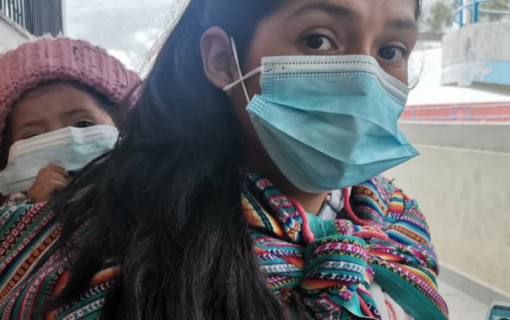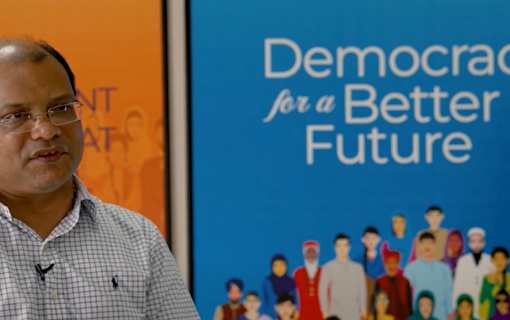Albania Technical Assistance to the CEC and Legal Reform Status Report, April - December 1998
EXECUTIVE SUMMARY
IFES involvement in the Republic of Albania dates back to 1991, when technical assistance was provided in preparation for Albania's first post-Communist elections in 1992. Beginning with the 1997 social unrest following the collapse of an investment scheme, IFES has had an increasingly significant role in stabilizing and developing democratic institutions in Albania. During the summer of 1997, IFES dispatched a team of 13 specialists to Albania to serve as part of the OSCE's technical assistance effort to support the electoral process for the June/July parliamentary elections. That project focused on voter registration and verification; voter education and media relations; election official training; commodities procurement; regional election administration; OSCE election office administration; deployment and briefing of international observers; legal analysis, advice and drafting; and advice and assistance to the Central Election Commission (CEC). IFES was simultaneously contracted by the U.S. Department of State to recruit and train 100 American election observers for the parliamentary elections.
Following the parliamentary elections, IFES proposed a three-phase project to USAID to continue the work begun by the OSCE. Phase I of the project focused on: building the new CEC as a sustainable institution; providing legal assistance in the drafting and development of a new Constitution; and developing and implementing a civil voter registry. Phase II of the project concerned ballot and procedural reform, the training of election officials and civic education. The final phase of the project included candidate information and support services, voter education and outreach and pre-election technical support to the OSCE Presence.
Although US AID approval for this proposal was not secured until September 30, 1998, IFES opened its Tirana office in April 1998 with financial support from the OSCE to begin Phase I of the project. During the early months of IFES' efforts in Tirana, considerable energies were devoted to clarifying the status of the CEC, mediating numerous political disputes, offering legal analysis to the Parliamentary Constitutional Drafting Commission and assisting in the partial local elections of June 1998.
Unexpectedly, project implementation was hindered when a second CEC was created to administer municipal by-elections in June 1998, less than one year after the creation of the "permanent" one with which IFES was to work. IFES played a crucial role in resolving the problem of the two CECs by assisting in the drafting of a Constitutional provision creating a single and permanent CEC and raising support for its inclusion in the final draft of the Constitution. This provision was ultimately included in the final draft and the Constitution was approved in a referendum held in November 1998, providing the constitutional basis for the development of a single, permanent CEC. IFES considers its role in designing and promoting this provision as its most lasting accomplishment of 1998.
One difficulty in daily operation concerned the delay in formal USAID approval between April and September. During this time without status as a USAID contractor, IFES Tirana experienced difficulties in daily operations including establishing an office, hiring employees, opening bank accounts and having telephones installed. Shortly after IFES obtained approval to expend funds through a pre-award letter, another major setback was experienced with the evacuation of American personnel from Albania in August. For over two months, from August through late October, only local staff was available to operate the Tirana office. Finally, IFES/Albania Project Director Dan Blessington was relocated to Skopje, Macedonia to oversee the project from there. At the same time, a French national was sent to Tirana to continue work with the CEC and conduct a voter education campaign under difficult political circumstances in preparation for the constitutional referendum in November.
Nevertheless, the initial phases of the project have had significant impact, including the following:
• The development of a strong partnership between IFES and the OSCE Presence in Albania. Because of the leading role of these two organizations during the early stages of development, a formal relationship was created between IFES, the OSCE and the newly created CEC, thus enabling IFES to participate in the current and future development of the Albanian electoral process.
• IFES was selected as a mediator of numerous partisan disputes within the CEC during the partial local elections which avoided the threatened withdrawal of opposition party members from the CEC.
• IFES mustered unanimous support· from a divided CEC for a constitutional provision establishing a single, permanent and independent CEC, which has since been ratified as a chapter in the new Albanian Constitution.
• IFES successfully completed a voter education campaign in the most difficult of political circumstances, contributing to the education of the electorate on voting procedures.
Much work remains in Albania, however. While there is now a constitutional provision for a single CEC, the commission must be developed into an independent, self-sustaining, effective institution. Furthermore, IFES can play a key role in the development of a new legal framework by assisting in the drafting of a new electoral code. Both of these areas were integral to the original proposal submitted to USAID in February 1998. The success of this endeavor will be an important and lasting contribution to the normalization of elections in Albania and its democratization.
Read the Full Report.









